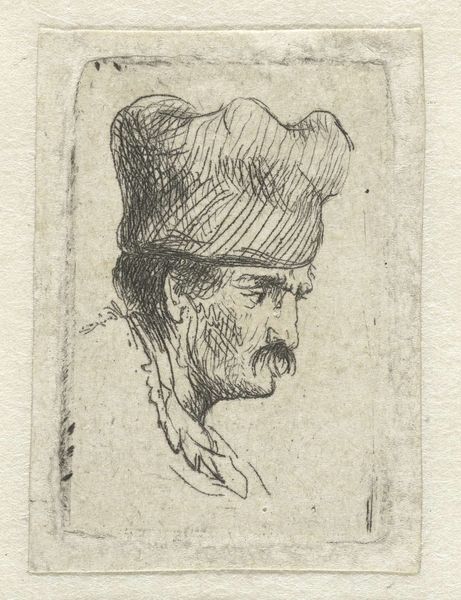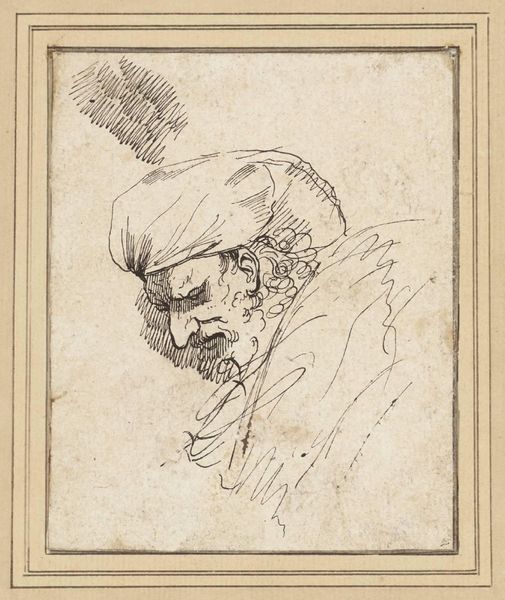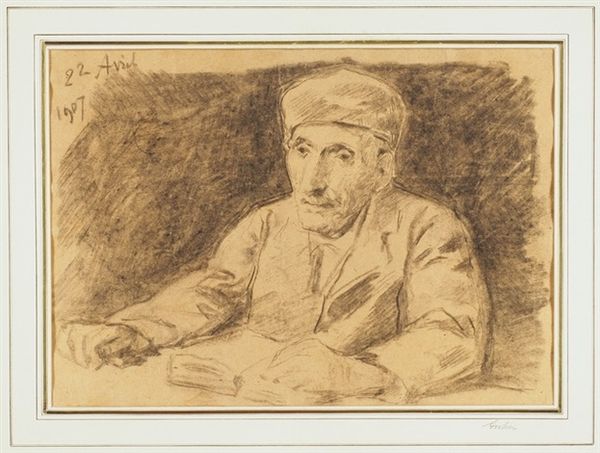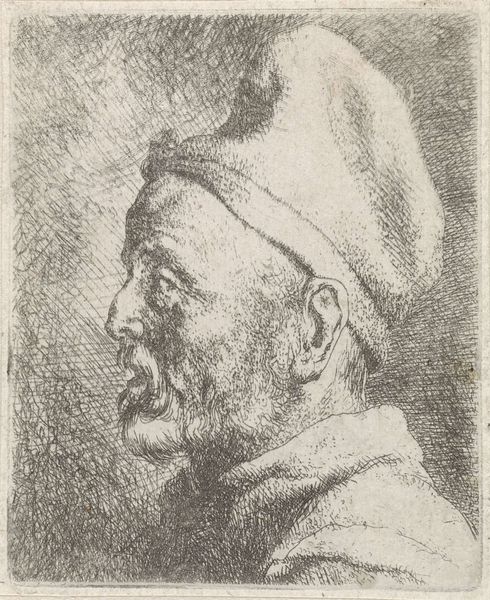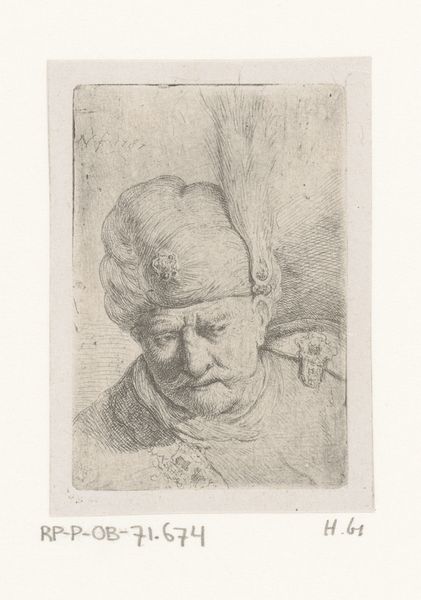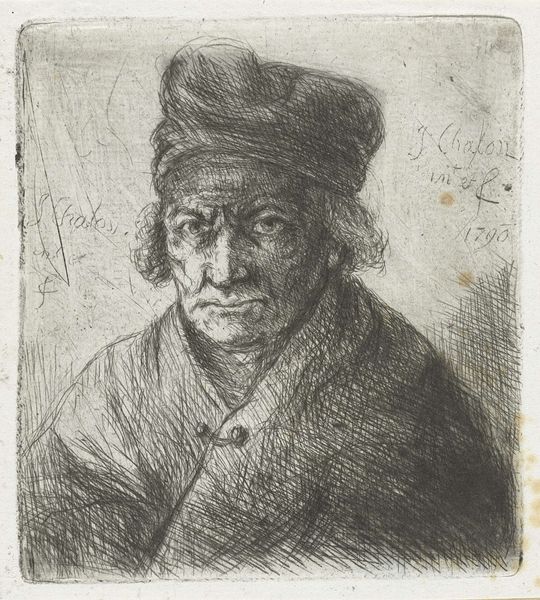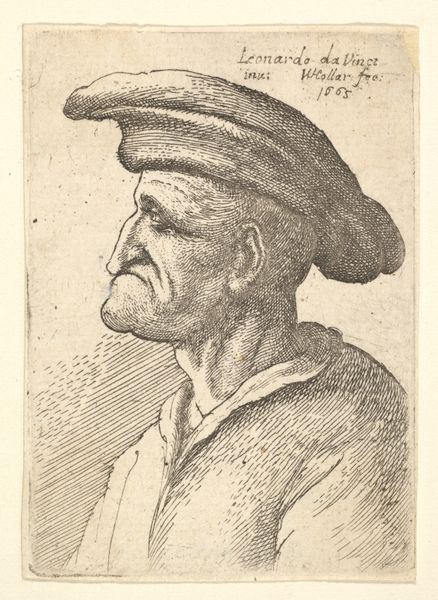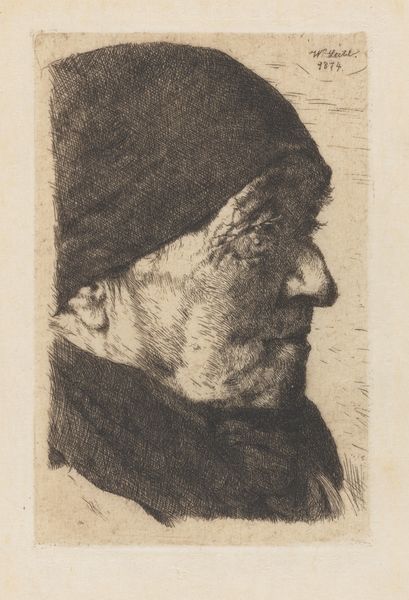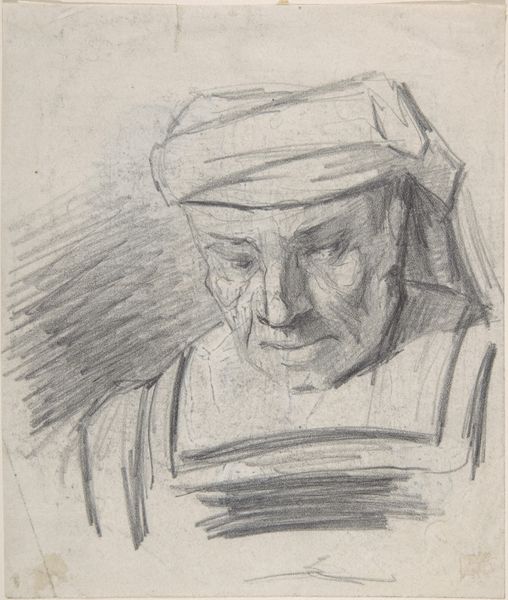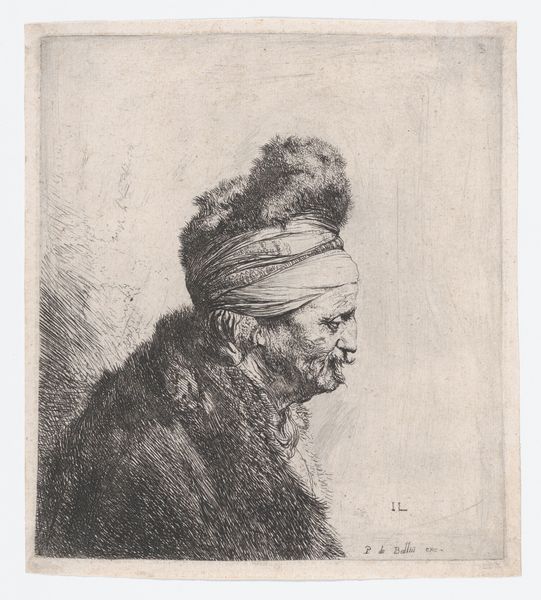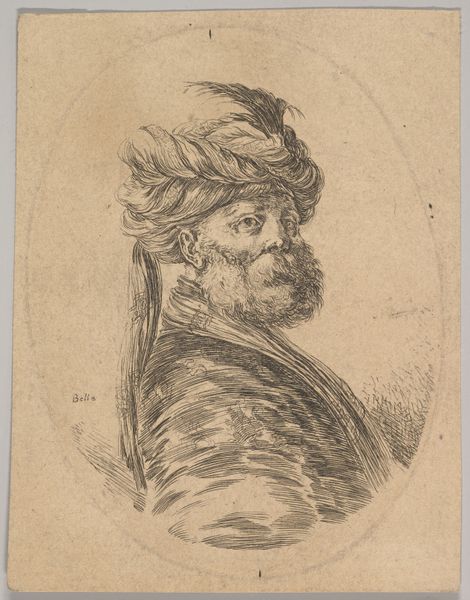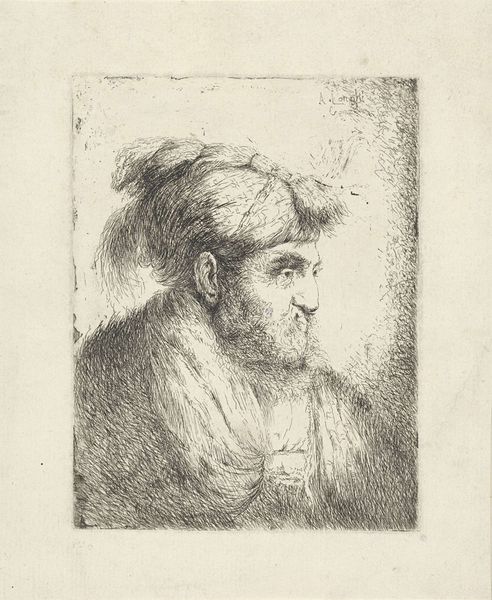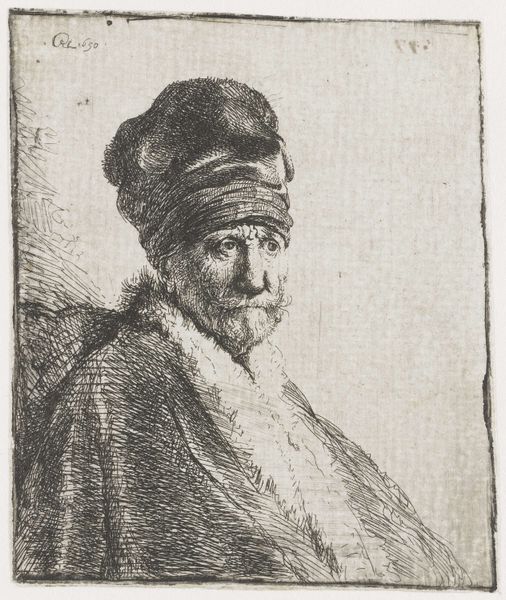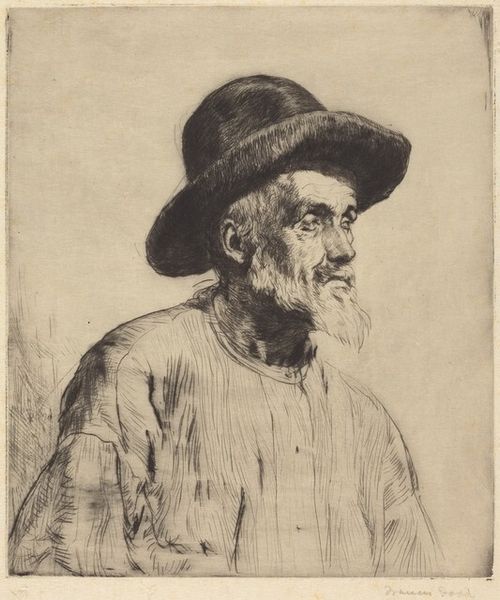
drawing, print, etching, pencil
#
portrait
#
pencil drawn
#
drawing
#
baroque
#
dutch-golden-age
# print
#
etching
#
pencil sketch
#
figuration
#
pencil drawing
#
pencil
#
line
Dimensions: height 37 mm, width 24 mm
Copyright: Rijks Museum: Open Domain
This is Rembrandt van Rijn’s "Man in a Square Cap, in Profile to the Right," an etching, and it’s a great example of his mastery of the medium. Etching is an indirect process. The artist covers a metal plate with a waxy, acid-resistant ground, then scratches an image into it with a needle. When the plate is dipped in acid, the exposed lines are bitten, creating grooves. These grooves hold ink, which is then transferred to paper under pressure. What I find fascinating here is how Rembrandt uses this method to create an image that seems so immediate. Look at the figure’s cap, how the closely spaced lines convey the texture of the fabric, the shadow and light. In Rembrandt’s time, printmaking was increasingly tied to wider systems of production, but here, his profound skill elevates the work beyond mere reproduction. It’s a reminder that even in a world of mechanical means, the artist's hand remains a crucial factor.
Comments
rijksmuseum over 2 years ago
⋮
Another five small depictions of men’s heads, but this time it is certain that they did not originate as independent prints. Originally, they were all on the same copperplate. After Rembrandt cut up the plate, he completed each print individually. This working method was unusual and characterizes Rembrandt as an artist who often strayed off the beaten path.
Join the conversation
Join millions of artists and users on Artera today and experience the ultimate creative platform.
